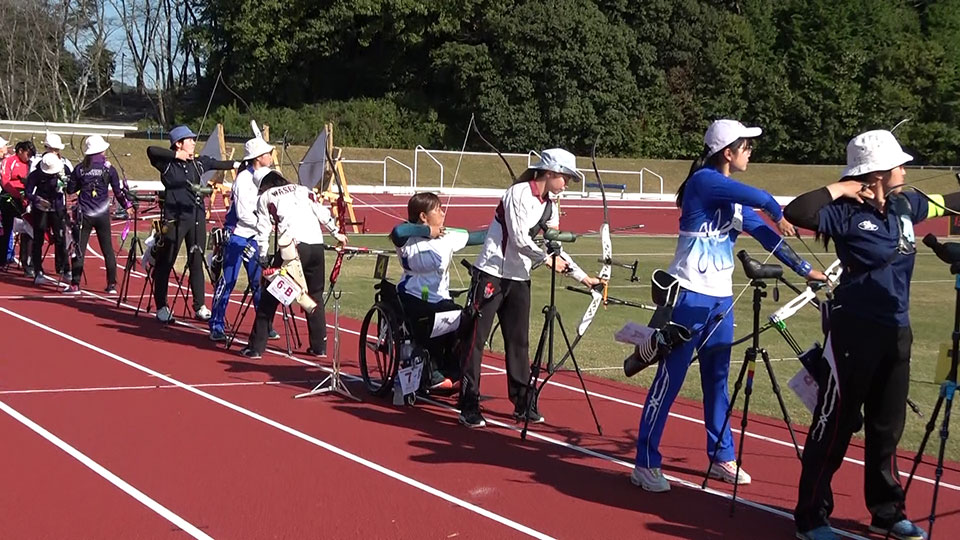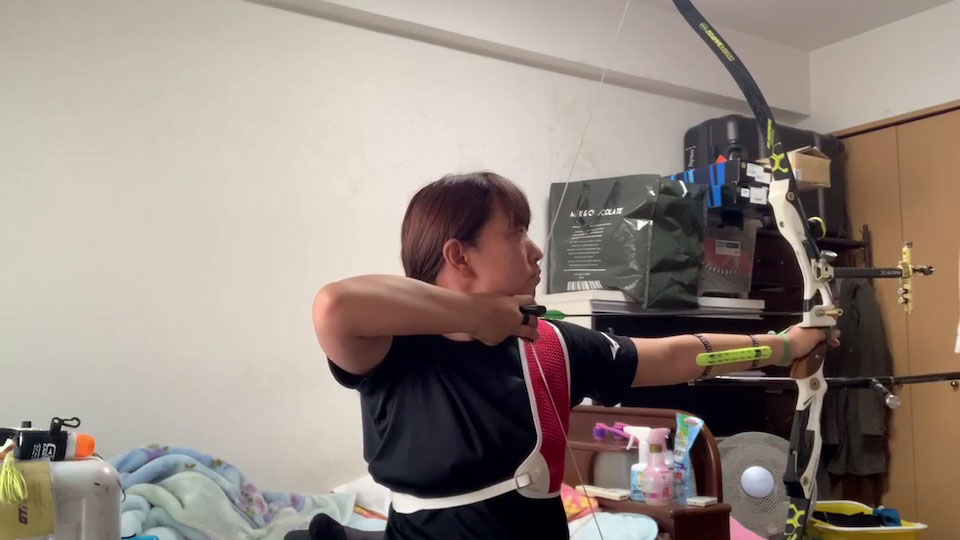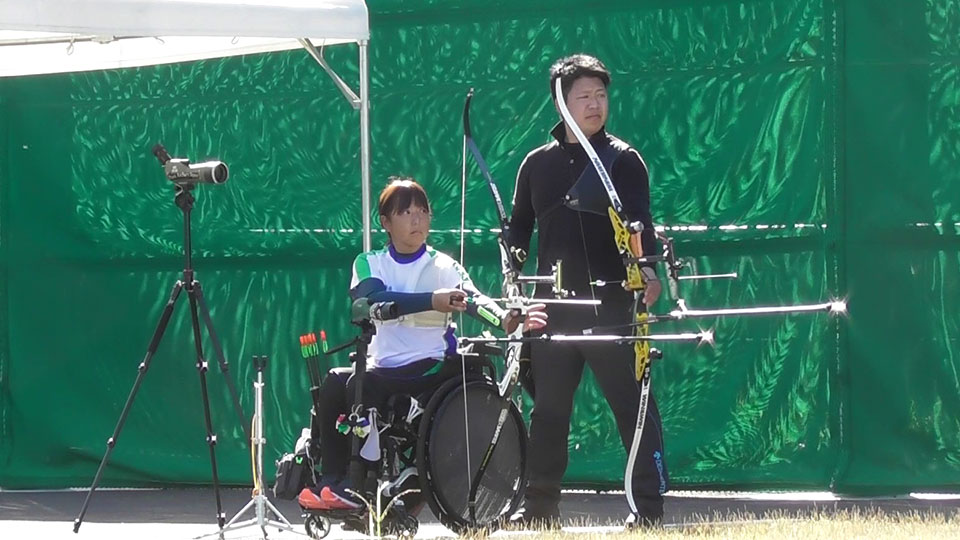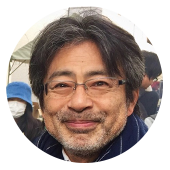The 38-year-old has an impressive sporting background, overcoming a series of setbacks to remain at the top of her game. She has used a wheelchair since her teenage years, when a virus damaged her spinal cord and paralyzed her lower body.
That didn’t stop her involvement in sport and Shigesada competed in wheelchair tennis for more than a decade, at one point ranking 6th in Japan.
After retiring from tennis in 2013, Shigesada reinvented herself as an archer. Within just two years, she grabbed a national title, earning a spot on the Japanese team for next year’s Paralympic Games in Tokyo.
The All Japan Archery Federation allows athletes with disabilities to compete in the national championship. Shigesada qualified for this year’s event for the first time. She shot 72 arrows toward a target 70 meters away, just like all the other competitors. The federation’s competition manager, Tsuda Masahiro says, “Shigesada’s appearance at the championship bears great significance for underlining the importance of coexistence with people with disabilities.”
Various measures were implemented at the event to prevent COVID-19 infections, including a rule for athletes to maintain a distance of at least one meter from one other.

Coronavirus pandemic hampers preparation
Shigesada emerged as a gold medal hopeful for Japan when she earned fifth place in the Para Archery World Ranking in February. But after the Tokyo Paralympic Games were postponed due to the pandemic, her training facility in Kitakyushu in southwestern Japan shut down.
Shigesada was forced to stay away from her coach, Suetake Hiroki, while battling her own fears about infection risks. She stayed home during the government’s state of emergency in April and May, as the virus that left her paralyzed also weakened her immune system.

“Easy does it”
Before the government’s state of emergency declaration, Shigesada was shooting more than 300 arrows per day. But she wasn’t able to maintain this pace at home and her muscles weakened. After resuming regular practice in July, she found she was unable to hold up her arms after shooting just a fraction of the arrows she used to manage. The first thing her coach said to her after the long hiatus was, “You’ve shrunk!”
Desperate to make up for lost time, Shigesada overtrained and injured her shoulder. She says she lost the balance of physical and mental strength that is so crucial in a sport often regarded as a competition against yourself.
But she was able to ease her mounting anxiety by chatting online with other athletes with disabilities. It helped put her own predicament in perspective.
“They told me ‘although we compete in different sports, all athletes are in the same situation’ and that ‘our bodies must have surely hung on to the skills we’ve practiced so far’. They made me realize I was overanxious. Since then, I keep telling myself, ‘easy does it’ in my training.”

Shigesada spent three months working to regain muscle strength and the All Japan Championships was her first competition in more than half a year. She finished 61st out of 67 at the qualifying stage, with a score of 576 out of 720. The result was far from her personal best of 634.
“I wanted to make sure not to become overwhelmed by the tense atmosphere, but I wasn’t able to,” she says. “I got a good score when I became less nervous, so I need to keep my emotional mood as stable as possible.”
While Shigesada didn’t make it to the final round, she says it was a valuable learning experience. She is no longer overanxious and is settling high goals for the Paralympics.
“I’ve declared I’ll aim for a gold medal,” she says. “To be true to my word, I’ll use the disappointment I felt at the championships as a springboard to train harder to get better results.”

